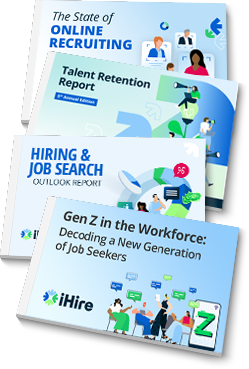- Employer Resources
- |
- Last Updated: December 14, 2022

Addressing Employee Mental Health & Well-Being
Along with navigating the COVID-19 pandemic and its threat to the physical well-being of employees, employers face a new health crisis — a mental health crisis. As employees try to adjust to their new normal, whether that involves working from home or going into the office, they’re under significant strain.
In fact, nearly 70% of employees say that the pandemic has been the most stressful time of their professional careers. Therefore, employers now need to step up and support employee health and well-being in any way they can.
Why Does Employee Mental Health Matter?
Each year, one in five U.S. adults will experience mental illness, but only half will receive treatment. Moreover, the National Alliance on Mental Health reports that the U.S. experiences $193.2 billion in lost earnings annually due to serious mental illness. Although mental illness can occur for many different reasons, one of the most common factors is chronic stress.
When employees are stressed, they run the risk of burnout. According to the World Health Organization, burnout is a syndrome characterized by exhaustion, decreased engagement, and reduced productivity. In addition to risking burnout, stressed employees are more likely to develop costly chronic conditions, miss deadlines, and perform poorly.
What’s more, many employees are turning to unhealthy coping mechanisms in response to their stress. The Centers for Disease Control and Prevention found that 40% of U.S. adults struggled with mental health or substance abuse in June of 2020. A rise in substance abuse creates a pandemic within a pandemic.
Beyond the productivity and health risks, addressing employee stress during these uncertain times will go a long way in establishing trust between upper management and employees and create loyalty. Employees will remember how their employer treated them during a global pandemic, which could hurt or help your brand, depending on your response.

What Can Employers Do?
Employee mental health initiatives will vary based on the organization, but may include some of the following strategies:
- Check in with remote employees — If your organization is having employees work from home to prevent the spread of COVID-19, you need to check in with those staff members. Remote employees are more likely to experience social isolation and feel disconnected from their peers, which can exacerbate mental health issues. Plus, remote employees may be tasked with juggling their work and caregiving responsibilities (e.g., helping children with virtual learning), which can add to their overall stress. Try to have weekly conversations with employees to gauge how they’re doing and make adjustments to workloads as needed.
- Promote available resources — To support employees during these uncertain times, it’s important that your company invests in mental health resources and promotes them. It’s not enough to provide access to mental health apps, virtual therapy, and Employee Assistance Programs (EAPs) because employees won’t use these services unless they know they’re available.
- Offer flexible scheduling and PTO — For employees who may be managing multiple responsibilities, the best help you may be able to provide is in the form of flexible scheduling or relaxing PTO policies. Doing so will allow employees time to handle their caregiving responsibilities so they can come back to their work feeling refreshed and able to focus.
Create Your Account Today

- Communicate often and early — One of the biggest stressors employees faced early in the pandemic was a massive change at a moment’s notice. Providing ample communication to employees about workplace procedures as early as possible can lessen stress and help employees have a sense of control.
- Train managers — Employers should train managers on how to recognize signs of mental health issues in employees and how to provide employee mental health support. With training, managers will feel confident in having difficult conversations in order to better employee health and well-being.
Addressing mental health concerns and providing employee mental health support is essential, but many employers struggle with what they can do. What’s most important is that employers do something and that they do it as soon as possible.
RELATED RESOURCES
Hiring? You're in the Right Place.
- Reach unique talent: 51% of our candidates aren't using other job boards
- Connect your ATS and get 6x more applications with iHire's apply process
- Get matching candidate resumes sent straight to your inbox
We Value Your Privacy




